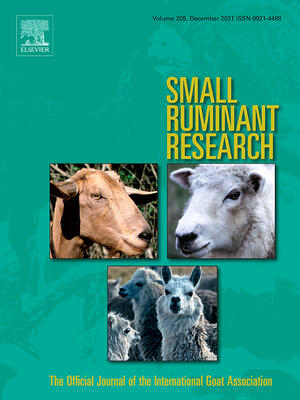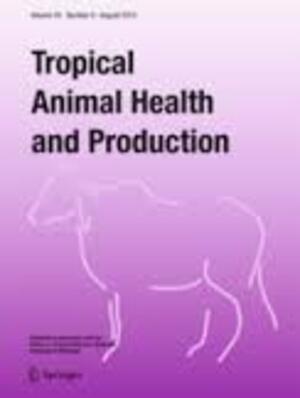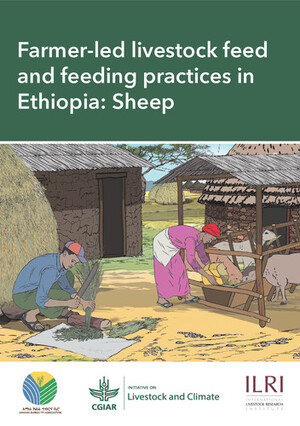
Feed intake, live weight gain and reproductive performance of Menz ewes supplemented with Lablab purpureus, graded levels of Leucaena pallida 14203 and Sesbania sesban 1198
Abstract
The research was conducted at the International Livestock Research Institute's Debre Zeit Research Station in Ethiopia. Leucaena pallida 14203, Sesbania sesban 1198 and Lablab purpureus were grown, harvested and dried at the research station. Seventy individually penned Menz ewes with a mean initial weight of 18.6+/-0.41 kg (mean+/-S.D.) were used in a randomized block design experiment that lasted for 6 months. Treatments consisted of supplementing ewes with L. pallida 14203 or S. sesban 1198 at 0.9%, 1.2% or 1.5% of live weight (LW). L. purpureus, offered at 1.2% of LW was used as a positive control. The basal feed tef straw (Eragrostis tef) was offered at 20% of refusal. Data on feed intake, LW gain, reproductive parameters and plasma activities of aspartate aminotransferase (AST), creatine kinase (CK), [gamma]-glutamyletransferase ([gamma]-GT) and alanine aminotransferase (ALT) were collected and analyzed. Graded levels of L. pallida 14203 promoted superior intakes of basal feed dry matter (DM) (PPPS. sesban 1198. Intake of basal feed DM was higher (PL. pallida 14203. Supplementation with S. sesban 1198 than with the same level of either L. pallida 14203 or L. purpureus resulted in increased (PL. pallida 14203 were heavier (PPL. purpureus or S. sesban 1198. Ewe weight at lambing was positively correlated (PPS. sesban 1198 appears to interfere with the reproduction of ewes and thus it could be considered as unsuitable supplement feed to pregnant ewes for an extended period of feeding. The plasma activities of assayed enzymes suggest that S. sesban 1198 may contain hepato-toxic anti-nutritive factors.
Citation
Livestock Production Science;87(2-3): 131-142










